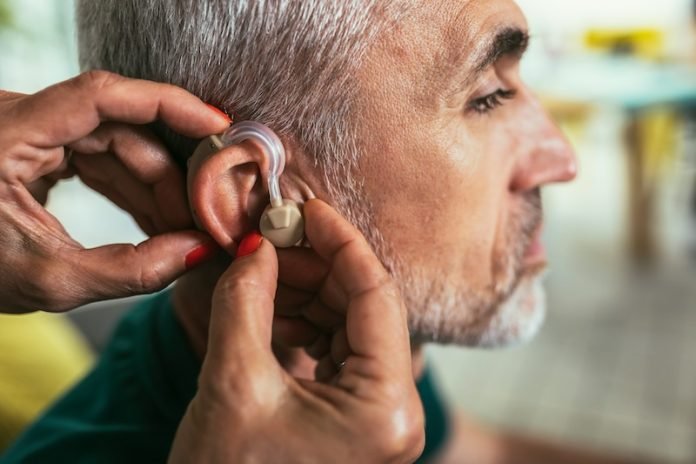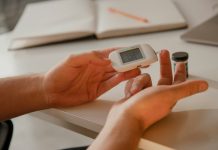
High blood pressure, or hypertension, is a common health condition that affects many aspects of bodily health, including an unexpected area: our hearing.
Research increasingly suggests that there’s a notable connection between high blood pressure and the risk of developing hearing loss.
This relationship is crucial to understand, as it highlights yet another reason to manage blood pressure through lifestyle and dietary choices.
Blood pressure is the force that blood exerts on the walls of the arteries as it circulates through the body. When this pressure is too high, it can damage blood vessels and organs, including those in the auditory system, which is responsible for our ability to hear.
The inner ear, particularly sensitive to blood flow changes, can suffer when hypertension disrupts the delicate structures that detect sound.
Several studies have explored this connection. For instance, research shows that high blood pressure can lead to reduced blood flow to the inner ear.
This reduction can starve the ear of the necessary oxygen and nutrients that blood provides, potentially leading to hearing impairment.
The inner ear’s sensory cells are very sensitive to changes in blood supply, and once damaged, these cells do not regenerate, leading to permanent hearing loss.
Another way hypertension may impact hearing is through its effects on the stria vascularis, a part of the ear that helps maintain the ionic balance required for hearing. Hypertension can alter this balance, impairing the ability to hear.
Furthermore, the stress and strain of hypertension on blood vessels throughout the body, including those in the auditory system, can cause them to stiffen and narrow, a condition known as arteriosclerosis.
This can also impair the function of the cochlea, the hearing organ in the inner ear. The cochlea relies on a steady blood flow to work correctly, and any reduction can impact its ability to transmit sound signals to the brain effectively.
Research has also shown a correlation between the duration and severity of hypertension and the degree of hearing loss.
Studies suggest that the longer a person suffers from high blood pressure, and the more severe it is, the greater the potential for damage to the auditory system. This correlation points to the importance of early management of blood pressure.
Addressing high blood pressure can therefore be seen as a preventive measure against hearing loss.
Lifestyle changes such as adopting a healthy diet, engaging in regular physical activity, avoiding excessive salt and alcohol, managing stress, and not smoking can all contribute to better blood pressure management and may help maintain good hearing health.
Moreover, the association between high blood pressure and hearing loss underlines the importance of regular health check-ups.
Early detection and treatment of hypertension can not only prevent heart disease, stroke, and kidney damage but also protect against hearing impairment.
In conclusion, the link between high blood pressure and hearing loss is a compelling reason to pay attention to cardiovascular health.
As we understand more about how different systems of the body are interconnected, it becomes clear that maintaining a healthy blood pressure isn’t just about avoiding heart disease—it’s also about preserving our hearing and overall quality of life.
Keeping your blood pressure in check is truly listening to your body. Regular monitoring, coupled with a healthy lifestyle, can help manage blood pressure and reduce the risk of hearing loss, allowing you to enjoy all the sounds of life for as long as possible.
If you care about blood pressure, please read studies that black licorice could cause dangerous high blood pressure, and this common plant nutrient could help reduce high blood pressure.
For more health information, please see recent studies about how coffee influence your risk of high blood pressure, and results showing this olive oil could reduce blood pressure in healthy people.
Copyright © 2024 Knowridge Science Report. All rights reserved.



